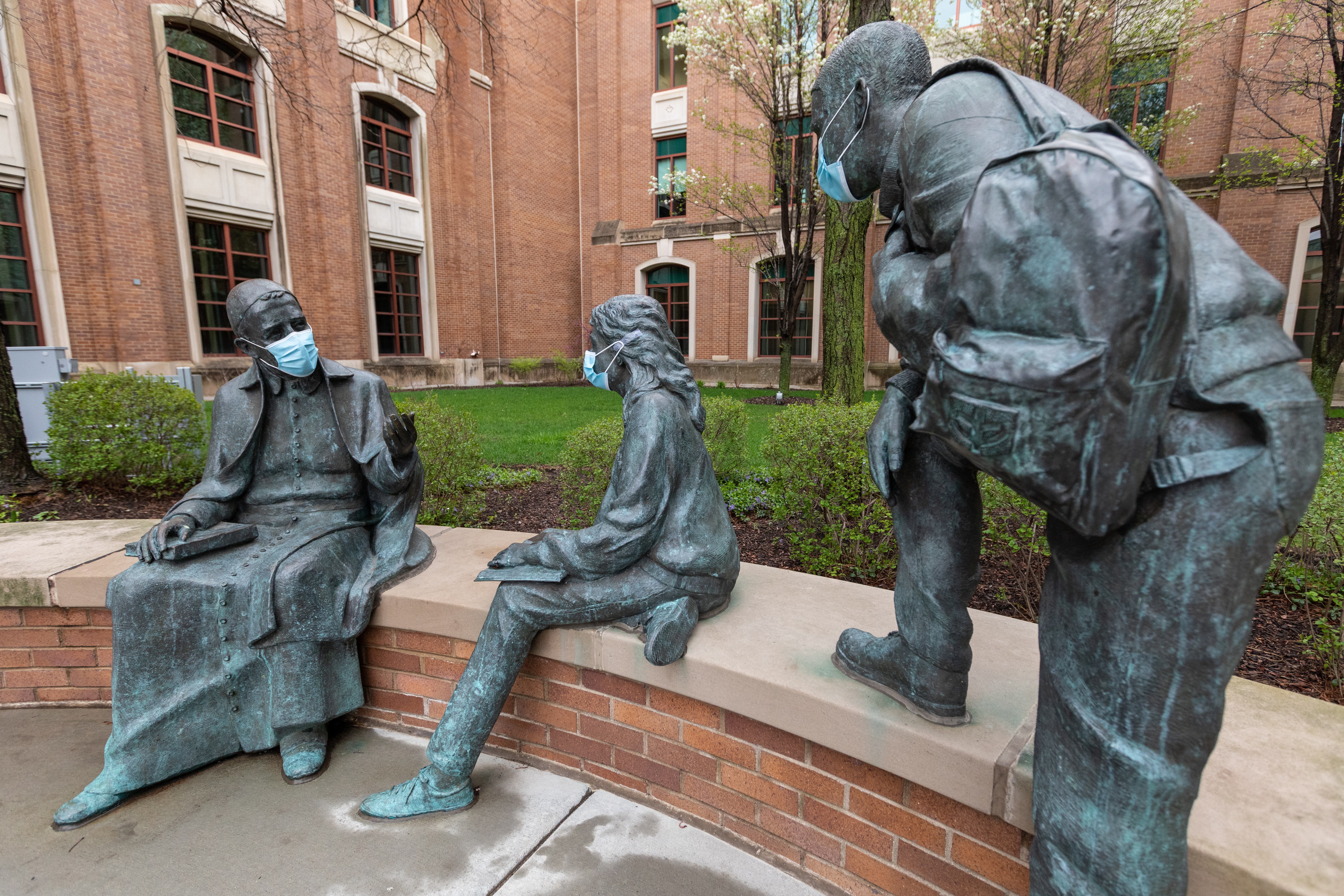 (DePaul University/Jeff Carrion)
(DePaul University/Jeff Carrion)This article was updated on June 23.
The Centers for Disease Control and Prevention has identified face coverings as an effective way of preventing COVID-19 from spreading when social distancing measures are difficult to maintain. As such, DePaul's Restarting Campus Operations Task Force has determined the use of face coverings will be a part of many aspects of returning to campus. Faculty, staff and students are expected to provide their own face coverings. The university will have a limited supply to share when people occasionally forget theirs.
According to the Illinois Department of Public Health: “a face covering is a mask or cloth face-covering that is well secured and covers your nose and mouth. The face-covering should allow for breathing without restriction. There is no requirement to wear a hospital grade mask or other specific type or brand of face-covering. You may wear a homemade face-covering, provided that it fits closely and covers your nose and mouth." The Illinois Department of Public Health offers information on how to make or care for face coverings on its website. Face shields are not
considered a replacement for a face covering/mask.
In keeping with the state's public health guidelines, members of the DePaul community will be expected to maintain physical distancing and to keep their nose and mouth covered at all times on both campuses. This includes but is not limited to DePaul owned or operated facilities, on DePaul property, and at all university functions or activities. For example, all individuals will maintain face coverings when walking to and from various locations on campus, in the quad and other outdoor locations, and in the residence halls (except for individual residents within their own rooms).
Faculty and staff are encouraged to discuss incidents of noncompliance with their immediate supervisor and consult with the Dean of Students Office as needed. Faculty also may ask students who are not wearing face coverings to leave the classroom.
Students who are experiencing various hardships that may prevent them from obtaining face coverings or other products that contribute to personal hygiene and safety will be provided appropriate campus and community resources.
Students with documented conditions that would discourage or prevent wearing facial coverings should be directed to the Center for Students with Disabilities so reasonable accommodations can be identified and implemented.
Guidance on the use of face coverings by faculty and staff will be addressed in more detail at a later time.